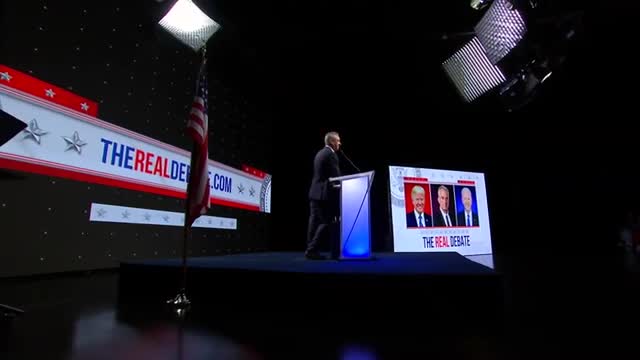Trump claims he could end Ukraine war before taking office
June 30, 2024 | Robert F. Kennedy Jr., Presidential Candidates 2024

This article was created by AI summarizing key points discussed. AI makes mistakes, so for full details and context, please refer to the video of the full meeting. Please report any errors so we can fix them. Report an error »

In a recent government meeting, discussions centered on the ongoing conflict between Russia and Ukraine, now in its third year. The dialogue highlighted contrasting views on the war's origins and potential resolutions, particularly regarding Russian President Vladimir Putin's terms for peace.
One participant criticized the current administration's handling of the situation, asserting that if there had been a more competent leader, the invasion of Ukraine might never have occurred. They emphasized the significant loss of life and suggested that the current president's perceived incompetence in foreign policy has emboldened Putin. The speaker claimed that under their leadership, the war would have been resolved swiftly, asserting they could negotiate peace before taking office.
Another participant countered this perspective, arguing that Putin's demands—specifically, retaining the territory he has claimed in Ukraine and preventing Ukraine's NATO membership—are unacceptable. They described Putin as a war criminal with ambitions to reestablish a Soviet-like empire, warning that conceding to his terms could lead to further aggression against neighboring countries.
The conversation also touched on the financial implications of U.S. support for Ukraine, with one speaker noting the substantial aid provided to the country and questioning the necessity of such expenditures. They pointed out that NATO allies have contributed equally to the funding of Ukraine's defense.
The meeting underscored the complexities of international diplomacy, with participants advocating for different approaches to the conflict and expressing strong opinions on the effectiveness of past and current U.S. leadership in addressing global security challenges.
One participant criticized the current administration's handling of the situation, asserting that if there had been a more competent leader, the invasion of Ukraine might never have occurred. They emphasized the significant loss of life and suggested that the current president's perceived incompetence in foreign policy has emboldened Putin. The speaker claimed that under their leadership, the war would have been resolved swiftly, asserting they could negotiate peace before taking office.
Another participant countered this perspective, arguing that Putin's demands—specifically, retaining the territory he has claimed in Ukraine and preventing Ukraine's NATO membership—are unacceptable. They described Putin as a war criminal with ambitions to reestablish a Soviet-like empire, warning that conceding to his terms could lead to further aggression against neighboring countries.
The conversation also touched on the financial implications of U.S. support for Ukraine, with one speaker noting the substantial aid provided to the country and questioning the necessity of such expenditures. They pointed out that NATO allies have contributed equally to the funding of Ukraine's defense.
The meeting underscored the complexities of international diplomacy, with participants advocating for different approaches to the conflict and expressing strong opinions on the effectiveness of past and current U.S. leadership in addressing global security challenges.
View full meeting
This article is based on a recent meeting—watch the full video and explore the complete transcript for deeper insights into the discussion.
View full meeting